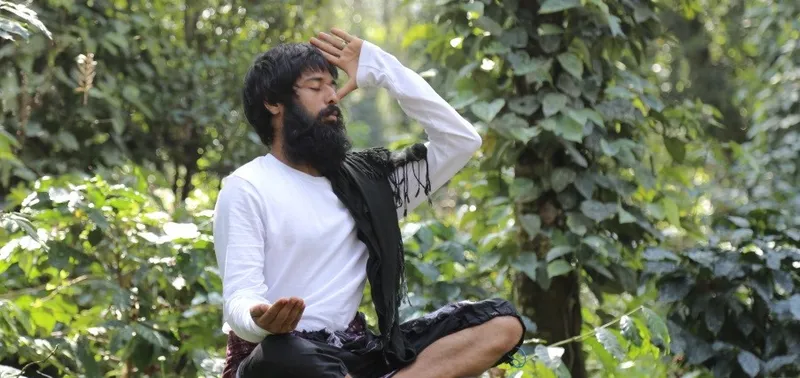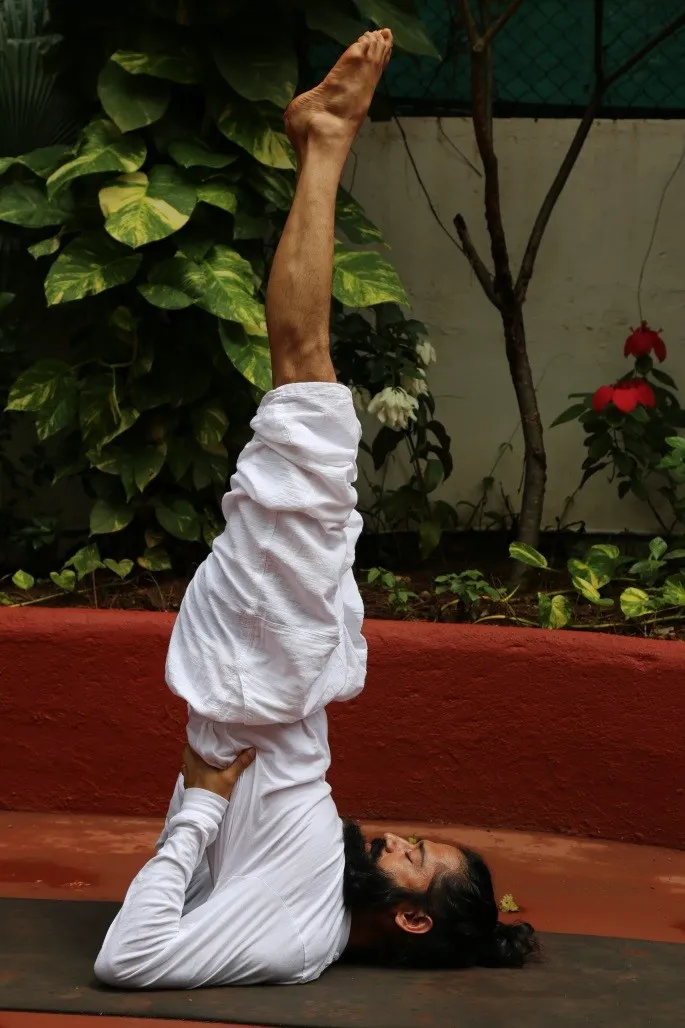Boost your productivity and efficiency at work through yoga
Here are a few yoga asanas that can rejuvenate your mind and strengthen your body, thereby helping you manage stress at work and gain confidence.
With work getting more demanding than ever and stress being unbearable, corporates have started adopting employee-friendly practices to make work life more fun and engaging. It’s no surprise that employees complain of divided attention and perpetual restlessness in both work and personal life. The best way to balance out both the worlds is through the age-old science of yoga.

Practising yoga not only calms your mind but gives you a great energy boost on the inside. We keep often speak about the importance of wellness at workplace, but the important question is how often do we practise what we preach? Performing yoga in your workplace has proven benefits within as well as beyond work life. Do you want your work life to be filled with energy, concentration, and peace? Then the below-mentioned yoga asanas are what you need to practise while you are working and when you are stressed out.
Pranayama
Pranayama, if practised every day, will prove to be beneficial for the mind and body. Practising desktop yoga along with Pranayama relieves stress, improves blood circulation, and improves posture. While performing pranayama one should make sure that the back is straight and one should concentrate on the breathing. Sahaj Pranayama – which is also known as easy breathing – involves breathing few times deeply. One needs to inhale through the nostrils for five counts and hold the breath for 10 counts and exhale through the mouth for 10 counts. This has to be repeated 10- 12 times.

- Sit in a comfortable cross-legged position.
- Close the right nostril with your right thumb and inhale deeply through left nostril.
- Close the left nostril with the ring finger of your right hand as you release the right nostril.
- Exhale slowly through your right nostril.
- Keeping the left nostril closed, inhale deeply through your right nostril.
- Seal the right nostril again with your thumb, then release the left nostril.
- Exhale through the left nostril. You should now be in the original position, with the thumb sealing the right nostril.
Utkatasana
Sometimes we never know how the day looks like when we step into work. We might end up having back to back meetings, or get stuck on one document, and consequently leave office really late. All this along with many other things in the workplace can cause loss of focus and concentration. During such conditions, one should practise Utkatasana, Ardha Chandrasena or Salabhasana to get rid of mental and emotional stress.
Utkatasana
Popularly known as the chair pose.
- Stand erect with your feet slightly apart
- Stretch your hands towards the front with your palms facing downwards.
- Bend the knees and gently push your pelvis down as if you are sitting in an imaginary chair.
- Make sure to keep your arms parallel and straighten your spine.
- Sink deeper into the chair by gradually going down but remember that your knees don’t go beyond your toes.
- Keep going down slowly and then sit down in Sukhasana (cross-legged posture). You may also lie down on your back and relax.
Sarvangasana, Ustrasana
Continuously staring at the screen and tapping the keyboard incessantly could also be reasons contributing to a drop in productivity. By performing Sarvangasana and Ustrasana, shoulders and arms are relaxed, allowing the parts of the body to function more efficiently. These asanas also have the power to deal with physical ailments.
Sarvangasana

- Lie on the carpet with legs together.
- Raise the legs to an angle of 90 degree. Now press the floor with your palms, lift the waist and bring the legs forward. Then keep them vertical to the ground.
- Bend the hands, hold the waist with the palms; balance and raise the legs to an angle of 90 degree to the floor. Your body and legs should be straight and vertical to the floor.
- The whole weight of the body should be resting on the shoulder blade. Rest the elbow on the floor with palms supporting the body.
- Maintain the pose for up to 50 or to 100 counts. Remember to focus on your toe nail with legs staying still.
- Lower the legs toe and back. Take the hands from the back and place it on the floor. Briskly bring the back to the floor and lie down.
- Take rest and do it again.
Trikonasana, Purvottanasana, Vajrasana
Yoga is the only medicine that has the power to fix both physical as well as psychological stress. While other medicines help in healing physical illness, yoga has the power to get to the root of problems and strengthen the immune system. By performing Trikonasana, Purvottanasana or Vajrasana, you can reduce fatigue and increase energy levels at work.
Trikonasana is popularly known as the triangle pose:
- Stand straight and separate your feet comfortably wide apart.
- Turn your right foot 90 degrees out and left foot 15 degrees in.
- Now align the centre of your right heel with the centre of the arch of your left foot.
- Ensure that your feet are pressing the ground and the weight of your body is equally balanced on both feet.
- Inhale deeply and as you exhale, bend your body to the right, downward from the hips, keeping the waist straight, allowing your left hand to come up in the air while your right hand comes down towards floor. Keep both arms in straight line.
- Rest your right hand on your shin, ankle, or the floor outside your right foot; whatever is possible without distorting the sides of the waist. Stretch your left arm toward the ceiling, in line with the top of your shoulders. Keep your head in a neutral position or turn it to the left, eyes gazing softly at the left palm.
- Ascertain that your body is bent sideways and not backward or forward. Pelvis and chest are wide open.
- Stretch maximum and be steady. Keep taking in long deep breaths. With each exhalation, relax the body more and more.
- As you inhale, come up, bring your arms down to your sides, and straighten your feet.
- Repeat the same on the other side.
Vinyasa, Eka Pada Rajakapotanasana
Being positive even during a stressful day is very difficult. Each of us have different attitudes, and managing peers along with work is a real challenge. This may also lead to dip in one’s confidence level, at work and in personal life. It is important to overcome these stressful situations at workplace by practising Vinyasa or Eka Pada Rajakapotanasana. Performing Vinyasa, where the poster looks like the form of a dog, gives a perfect relaxation to the entire body and allows the easy flow of blood throughout the body. Similarly, Eka Pada Rajakapotanasana gives a perfect stretch to the stomach and the legs.
Eka Pada Rajakapotanasana
Popularly known as the pigeon pose.
- Start off by making sure your knees are placed right under your hips, and your hands a little ahead of your shoulders.
- Now, gently slide your right knee forward, such that it is just behind your right wrist. While you do this, place the right shin under your torso, and bring your right foot in front of your left knee. The outsides of your right shin must rest on the floor.
- Slowly, slide your left leg to the back. Straighten your knee, and drop the front of your thighs to the floor. Lower the outsides of your right buttocks on the floor. Place your right heels in front of your left hip.
- You can angle your right knee towards the right, such that it is outside the line of the hip.
- Your left leg should extend itself straight out of the hip. Make sure it is not angled to the left. Rotate it inwards, such that its midline is pressed against the floor. Take a deep breath, and as you exhale, bend your left leg at the knees. Then, push your torso back and stretch as much as you can so that your head touches your foot.
- Lift your arms up, gently folding them at your elbows. Use your hands to bring your foot towards your head.
- Maintain the upright position of your pelvis. Push it down. Then, lift the lower rims of your rib cage against the pressure of the thrust. To lift up your chest, push the top of your sternum straight up and towards the ceiling.
- Stay in this position for at least a minute. Bring your hands back to the floor and drop your left knee down. Gently slide the left knee forward. Exhale and come up to the Adho Mukha Svanasana. Take a few breaths. Then, come back on your fours and breathe. As you exhale, do the asana with your left leg forward and right leg at the back.
(Disclaimer: The views and opinions expressed in this article are those of the author and do not necessarily reflect the views of YourStory.)







